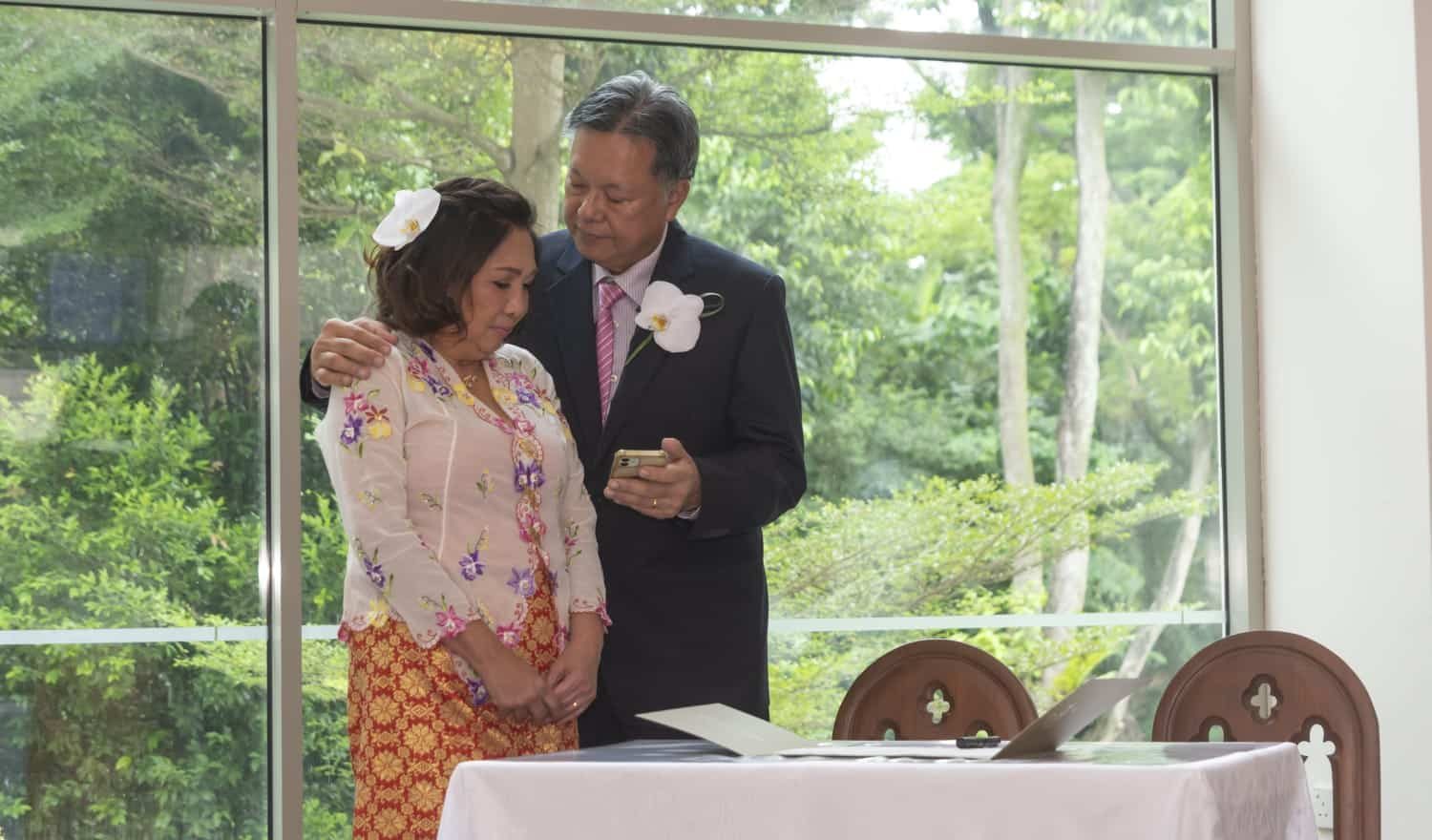Thanksgiving: Renewing Gratitude
Salt&Light wishes all our readers a Happy Thanksgiving.
Peter Chao // November 26, 2020, 2:09 pm

Being thankful "puts us in our place as creatures totally dependent on Divine grace and generosity", says Peter Chao. Photo by Priscilla Du Preez on Unsplash.
It’s the course of least resistance.
When people or organisations grow older, they snuggle into their comfort zone and spontaneously slide into a maintenance mode. They recount past battles and live in bygone victories, oblivious to current realities. They speak longingly of those early years, “the good ole’ times”.
Resting on laurels, most who have achieved in the past stop growing, learning or being effective in the present. This is the most natural and compelling temptation we all face.
When people or organisations grow older, they snuggle into their comfort zone and spontaneously slide into maintenance mode.
This eventuality is observed in nature in the Second Law of Thermodynamics: The entropy of the universe tends to the maximum.
That means that the quality of matter or energy deteriorates gradually over time, resulting in randomness, chaos and disorganisation.
This applies to much of life. Every activity or organisation has a life cycle. Over time, the best human enterprises deteriorate, the noblest intentions get infected and the most vibrant movements get institutionalised.
It’s imperceptible, but inescapable.
The late Dr. Paul Hiebert, an anthropologist par excellence, observed that “over the generations, an institution normally grows and matures, and with maturation come the problems of middle age – loss of vision and hardening of the categories”.
He outlines the gradual shift from the high cost of starting of a new movement and camaraderie among members to a maintenance mode in an increasingly impersonal environment.
Informal relationships give way to formally defined roles, operating procedures are now put in place, and intimacy is now replaced by official lines of accountability.
The pace of the slide may be glacial, but predictable.
Growing ego, downward spiral
On a personal level, over time, we naturally move from self-giving to self-serving. Gradually, our personal needs become more pronounced, and we become more conscious of how much more we deserve.
Loud voices in our heads insist “My rights are trampled” as we moan over what more we should be getting.
We are deluded into thinking we are ingenious, invincible and indispensable.
We indiscernibly gravitate from “It’s not about me, It’s about the greater purpose and vision” to “What about me? My needs are important too”.
We slide from “What can I do to change the world?” to “What do I need for a better life?”
This downward spiral occurs with each experience that impedes a growing ego. Every achievement in life and vocation tempts us to attribute the success to ourselves. We are deluded into thinking we are ingenious, invincible and indispensable.
Our enlarged egos get agitated when previously acceptable parameters start to get in our way. We start thinking we are entitled to more because we know, do and sacrifice more. Parameters are for lesser mortals. We deserve better.
Bitterness begins to steal its way from our souls to our consciousness. Co-labouring becomes impossible as our prerogatives take precedence.
Small wonder we are warned: “Watch out that no bitterness takes root among you. It causes deep trouble, hurting many in their spiritual lives.” (Hebrews 12:15)
Beneficiaries of blessings
Rick Warren, the founding Pastor of Saddleback Church in California counsels: “Bitterness never changes anything, but gratitude does. It’s the antidote to bitterness … gratitude is the healthiest emotion you can possibly have.”
The way to grow in life and find fulfilment in vocation is to remain grateful. When we are thankful, we bask in and respond to the sunlight of God’s grace and faithfulness, making new ventures possible and new relationships meaningful.
We start the journey to gratitude by counting our blessings. Even the best of us are beneficiaries.
“Bitterness never changes anything, but gratitude does.”
Isaac Newton remarked: “If I have been able to see further, it was only because I stood on the shoulders of giants.”
Those whose lives are significant acknowledge the gifts of nurture to them, and are mindful to return the same gifts to others as expressions of gratitude.
God’s people are reminded to “Praise the Lord … and forget not all his benefits”. (Psalms 103:2)
We are to remember that “Once you were not a people, but now you are the people of God; once you had not received mercy, but now you have received mercy.” (1 Peter 2:10)
Being thankful hardwires into our consciousness that we are not the center or masters of the universe. It puts us in our places as creatures totally dependent on Divine grace and generosity.
Only such a disposition can make personal growth possible and community meaningful.
From gratitude to renewal
To prevent institutional entropy, Hiebert asserts “this can be done … by rituals of renewal in which members of the organisation together seek God’s guidance and revivals. Festivals and revival meetings have played powerful roles in revitalising and reshaping churches and organisation around the world”.
Seeds of life are always present in a maturing organisation. Frequently, its advocates are on the margins of the institution. Either they are young or they did not go through the same qualifying hurdles.
If incumbent leaders are flexible and humble enough to listen to those with different experiences or training, new sensitivities will renew a maturing organisation.
“Being thankful hardwires into our consciousness that we are not the centre or masters of the universe.”
There will always be resistance to renewal, especially when the status quo is challenged.
Revivals offend the dignities and sensibilities of a staid leadership. They are unjustified expense on the budget. They are seen as a lot of hot air without substance.
But, they are the means of renewal, especially of a spiritual nature.
It is costly to clean the clogged arteries of a matured organisation. Entropy is the course of least resistance.
Renewal takes effort.
And it begins with gratitude.
We all have a responsibility to stay on the cutting edge, both personally and organisationally. Only when we are fresh is life invigorating and vocation meaningful.
To stay engaged, we have to be alert and be consciously open to personal and corporate renewal, in order to resist the temptation to a spontaneous slide into deterioration.
Cultivating gratitude in our hearts will open new possibilities of renewal in our lives and organisations.
This devotion was first run in Peter’s Ponderings by Peter Chao, Founder of Eagles Communications, and is republished with permission.
Reflection and Discussion
Psychologists have variously suggested focusing on positive thoughts while dealing with challenging situations.
The psalmist praises God while complaining bitterly about his realities.
What have you found helpful to keep thankful while being realistic about life’s challenges?
Business down by up to 97%, yet these restaurant owners are still giving to the community
We are an independent, non-profit organisation that relies on the generosity of our readers, such as yourself, to continue serving the kingdom. Every dollar donated goes directly back into our editorial coverage.
Would you consider partnering with us in our kingdom work by supporting us financially, either as a one-off donation, or a recurring pledge?
Support Salt&Light



